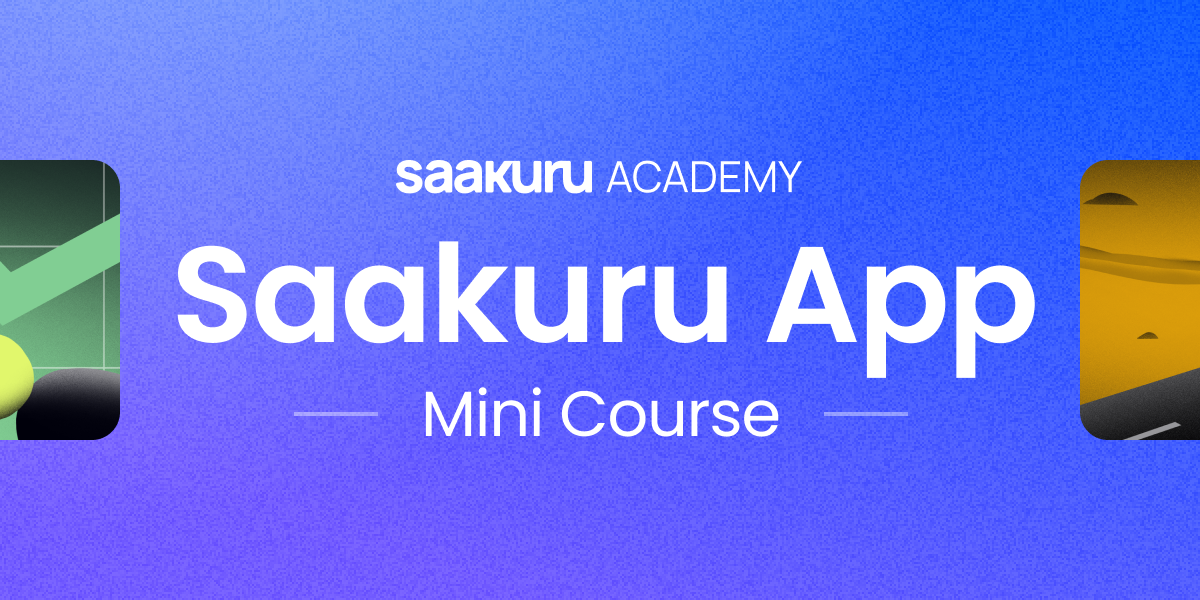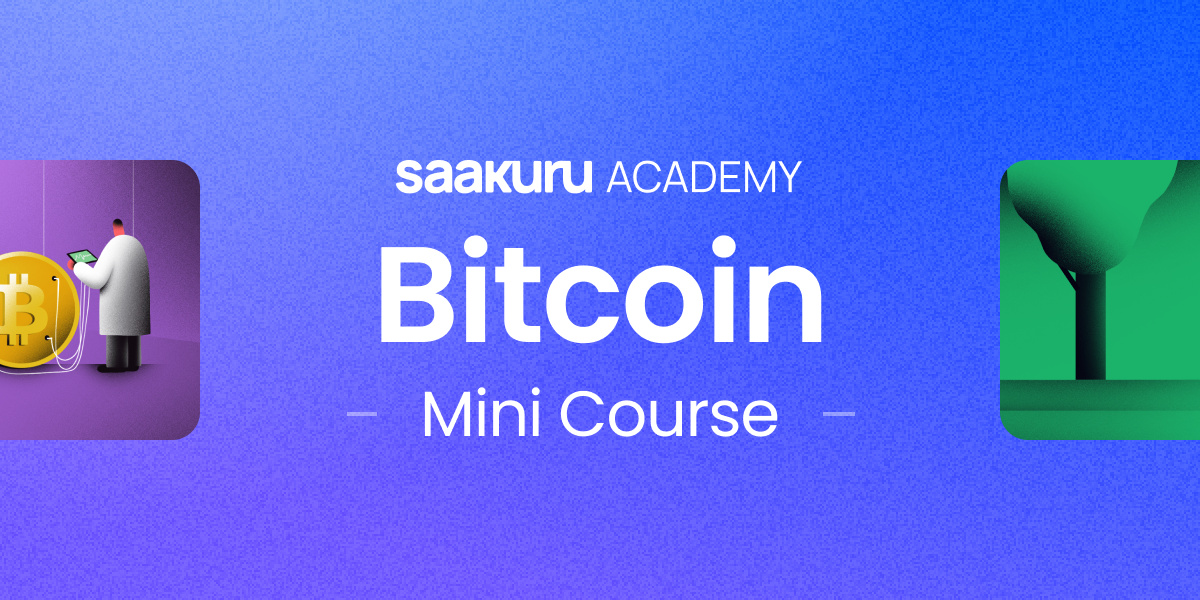- Products
Saakuru Blockchain Blockchain with no gas fee
Learn moreSaakuru App All-In-One crypto wallet
Learn moreSaakuru SDK Embed Web3 wallet easily
More InfodApp Store Discover Thousands of dApps
Learn moreSaakuru Games Guild Management Tool
Apply for scholarshipTomoOne Grow virtual pet
Learn moreSaakuru Cashback Shop online with discount
Learn more - Token
- Academy
- Saakuru Live
- About us
- Community

What is a cryptocurrency wallet?
The article provides a beginner-friendly guide to cryptocurrency wallets, emphasizing:
- Their role in managing and using digital assets.
- The distinction between custodial and non-custodial wallets and their functionalities.
- How wallets work using public and private keys for secure transactions.
- Different types of wallets (mobile, desktop, hardware) and their conveniences.
- The importance of choosing the right wallet based on personal needs in cryptocurrencies and dApps.
For almost everything you might want to do in the web3 world — whether it’s trading cryptocurrency, enjoying play-to-earn games, or investing in NFTs — you need a cryptocurrency wallet. It’s the best way to use and manage your digital assets, and keep track of what they’re worth. But did you know that not all cryptocurrency wallets are the same?
There are a number of different kinds available, such as custodial and non-custodial wallets, and although they offer similar functionality, the way they operate is very distinct. The type of cryptocurrency wallet you need depends on what exactly you want to do with it. In this Saakuru Academy guide, we’ll teach you the differences, and help you decide which is best for you.
What does a crypto wallet do?
A cryptocurrency wallet is essentially a piece of software. Think of it like a traditional online banking app; you can use it to keep track of your balances — how many tokens you hold as well as how much they’re worth — and to transfer cryptocurrency tokens back and forth. The most popular wallets hold multiple different kinds of cryptocurrency token — as many as you like.
However, not every wallet is compatible with every cryptocurrency. For instance, if you have a custodial wallet, it will only hold tokens that have been acquired on the wallet’s own exchange, which is why many cryptocurrency traders tend to carry multiple wallets, at least one of which is custodial and at least one of which is non-custodial.
That may not be necessary for you, depending on what kind of cryptocurrency you want to buy and how you want to use it. If you’re only interested in investing in the biggest cryptocurrencies like Bitcoin and Ethereum, for instance, you might only need a custodial wallet. If you want to invest in smaller projects and use DApps, you’ll need a non-custodial option.
How does a crypto wallet work?
Unlike traditional bank accounts, which use account numbers, sort codes, and internal bank account numbers (IBAN) for routing, cryptocurrency wallets use two digital keys. One of these is public and the other is private. They’re both long strings of letters and numbers (usually 14-64 digits) and they’re tied together, but they serve different purposes.
The public key is what’s used to make cryptocurrency transfers. It’s the key you’ll share with others when they want to send you tokens, and the key others see when you send tokens to them — like your bank’s account number and sort code.
The private key, which is not shared with anyone else, is a digital signature that’s used to authorize your cryptocurrency transactions. Without this, it’s not possible for someone else to withdraw or transfer tokens from your account — even if they know your public key.
It’s handy to know what these keys do, but you don’t have to remember them. Cryptocurrency wallets usually take care of that for you.
What types of crypto wallets are available at the moment?
As we’ve touched upon above, there are multiple types of cryptocurrency wallet, and each is available in multiple forms. These are currently the most popular options:
- Mobile wallets
Mobile cryptocurrency wallets, which you can download from the App Store on iPhone or from Google Play on Android, are the most popular kind because they make managing your tokens — and keeping an eye on your balances — incredibly convenient. They’re also easy to set up.
Much like a mobile banking app, a mobile cryptocurrency wallet lets you access your tokens and trade or sell them from anywhere, so long as you have an internet connection.
- Desktop wallets
Desktop wallets are much like mobile wallets, except they run on your computer rather than your smartphone. Some desktop wallets can also be accessed on a mobile device; however, others can only be used on the computer on which they were installed. These can be installed as a standalone application or as a browser plugin.
- Hardware wallets
Hardware wallets are stored on a physical device, which typically looks like a USB storage stick, that you can take with you wherever you go and use on almost any computer.
What are custodial and non-custodial wallets?
A custodial cryptocurrency wallet app, otherwise known as a centralized wallet app, is one that’s controlled by a central entity. They are usually offered by centralized exchanges, such as Binance and Coinbase. Custodial wallets give you the ability to send and receive cryptocurrency tokens, but they do not give you full control over your funds or your private keys.
A non-custodial wallet app like MetaMask or Trust Wallet, otherwise known as a decentralized wallet app, is one that is not controlled by a central entity. It gives users complete control over their funds and their private keys, eliminating the third-party.
Pros and cons of custodial and non-custodial crypto wallets
Like most things, centralized and decentralized wallets have their pros and cons, and it’s very important to take note of these before deciding which is the best solution for you. Here are the key things to consider:
- Ownership: If you want to be entirely responsible for your digital assets, only a decentralized or non-custodial wallet will give you that. But it’s up to you — and only you — to protect your wallet and your private keys. You can reset your password to a centralized wallet if you forget it, but it’s much more difficult to recover a lost device upon which your decentralized wallet is installed. Bear in mind, however, that when you use a centralized wallet, there is a slight risk that you could lose everything if the company behind that wallet folds.
- Security: Many consider centralized wallets to be less secure, since a central entity is an easier target for attackers. However, when you use a decentralized wallet, it’s up to you to ensure that no one else can access it. The device upon which the wallet app is installed should be secure, and you should not share your seed phrase with anyone.
- Anonymity: Because centralized wallets are controlled by central entities, most of them are governed by some kind of regulation in many markets. That means you’ll need to complete certain steps to create one — such as proving who you are. However, anyone can open a decentralized wallet and be mostly anonymous.
- Functionality: Only decentralized wallets can access decentralized applications or “dApps.” So, if one of your primary reasons for acquiring cryptocurrency is to use the growing number of dApps available, only a decentralized wallet will do.
- Support: Without a central entity to turn to, it’s more difficult to get support for decentralized wallets when things go wrong or don’t work as intended. However, centralized wallet apps are usually backed by official customer support teams who can help you deal with any issues that may arise.
References
- What Is a Crypto Wallet?
- Understanding How to Store and Transact Bitcoin
- What Are Cryptocurrency Wallets?
- The differences between centralized and decentralized cryptocurrency wallets
- Are Crypto Wallets Safe? How To Keep Crypto Wallets Safe? 3 Secure Ways
- What is a Crypto Wallet? A Beginner’s Guide
Frequently Asked Questions
Those who are new to cryptocurrency trading typically find that centralized wallets are the best place to start. Although you have to jump through some hoops to get set up, the process can be more welcoming for newcomers. Acquiring and trading cryptocurrency can also be simpler through a centralized wallet, and there’s support available if you need it.
However, if you feel comfortable enough with taking full responsibility for your digital assets, a decentralized wallet gives you greater flexibility — including access to more cryptocurrency tokens across many decentralized exchanges, and decentralized apps (dApps). You’ll be able to do whatever you want with your assets, and it will be up to you to protect them.
Some wallets are beginning to give users the best of both worlds. For instance, the Saakuru Wallet does away with complicated seed phrases in favor of more advanced and more secure login systems, while still providing users with access to the most popular decentralized exchanges and fiat gateways.
Of course, you don’t have to choose just one wallet. Most traders use both centralized and decentralized wallets for different purposes, and there’s nothing to stop you having as many wallets as you like. In fact, if you spread your cryptocurrency holdings across multiple wallet apps, you greatly reduce the risk of losing them all as a result of one failure.
Cryptocurrency wallets use blockchain technology and cryptographic security, so they are considered to be safe. However, as is often the case with things of this nature, it is up to us as users to ensure our wallets do not fall into the wrong hands. You should never share your wallet’s seed phrase with others or use untrusted services.
An NFT wallet is a place to store any NFTs you have acquired. Many of today’s biggest cryptocurrency wallets now store NFTs as well, and many provide access to NFT marketplaces.
To cover all your needs we suggest using our Saakuru All-in-one crypto app! It’s one of the simplest ways to get started with a crypto wallet -download one to your smartphone. Starting out with centralised wallets like Binance and Coinbase can also be a good idea.
Was this article helpful?
YesNo
Disclaimer
This article is intended to provide generalized information designed to educate a broad segment of the public; it does not give personalized investment, legal, or other business and professional advice. Before taking any action, you should always consult with your own financial, legal, tax, investment, or other professional for advice on matters that affect you and/or your business.
Get news first
Be the first to get our newsletter full of company, product updates as well as market news.
🍪
We use cookies to make your experience better. Learn more: Privacy Policy
Accept

















